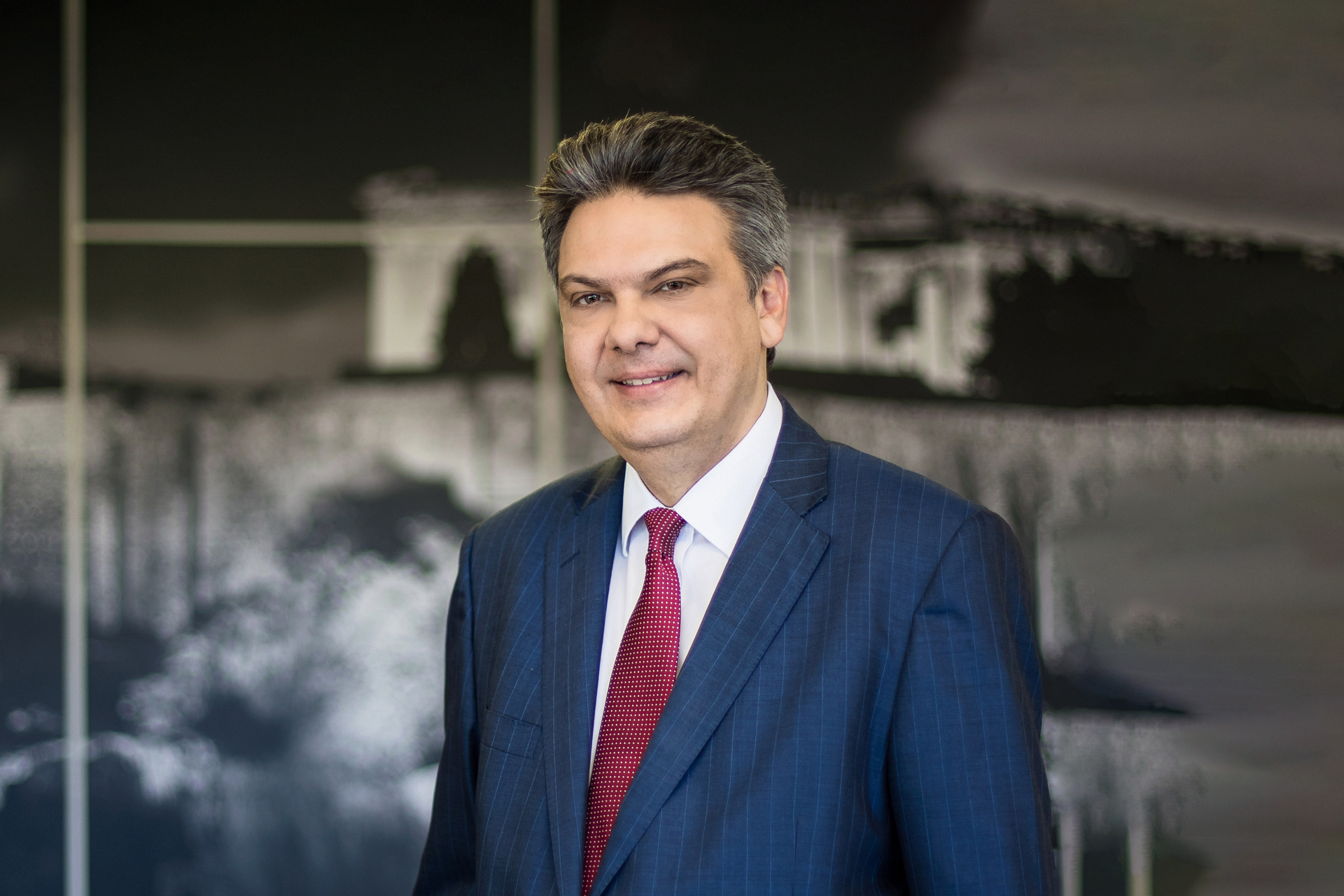EY refers to the global organization, and may refer to one or more, of the member firms of Ernst & Young Global Limited, each of which is a separate legal entity. Ernst & Young Global Limited, a UK company limited by guarantee, does not provide services to clients.

Greek CEOs take a conservative approach, choosing organic investment over M&A to reshape their portfolios.
In brief
- Greek CEOs are adapting to a business landscape fundamentally altered by the pandemic and geopolitical challenges.
- Digital transformation and ESG strategies are seen as key elements of value creation.
- Greek CEOs take a conservative approach to M&A, at a time when bold moves may be necessary for market-leading growth.
According to the recent EY CEO Outlook survey, Greek executives are adjusting their strategic investment agenda to address the impact of the COVID-19 pandemic, as well as ongoing geopolitical and socioeconomic challenges.
As we explore how Greek CEOs are responding to the pandemic and the recovery, we find that digital transformation, new growth channels and ESG strategies constitute the core objectives in the CEO playbook. Yet, while Greek CEOs identify the ability to manage investor and stakeholder relations as a crucial element in the journey toward decarbonization, some investors and shareholders are not yet convinced of the benefits.
Greek CEOs adapt to a changed socioeconomic landscape
More than half (54%) of Greek CEOs indicate that the COVID-19 pandemic caused short-term disruption to their respective industry, while 28% of respondents observed either fundamental changes for the better or an acceleration of existing trends in their industry.
As executives strive to understand the new socioeconomic landscape that was fundamentally altered by the pandemic, they are adapting. Nearly two-thirds (62%) of Greek CEOs say they are adjusting their strategic investments to manage the downside risks related to geopolitical tensions. Increasing business uncertainty has prompted just over half (55%) of these executives to delay or halt planned cross-border investments. However, the new, post-pandemic world also provides significant opportunities, with 45% saying they are hedging their bets by accelerating their cross-border investments.
Meanwhile, with labor shortages and a sudden surge in consumer demand creating significant disruptions in global supply chains, CEOs have taken actions to increase operational resilience and reduce logistics costs.
Interestingly, although increasing global tensions are top-of-mind today for Greek CEOs, they see changing demographics and economic growth trajectories, as well as the accelerating use of technology and data by competitors, and the uncertainty around the evolution of disruptive technologies, as the most critical risks to their future growth strategy.

Digital transformation and ESG strategies are key to value creation
Many Greek CEOs recognize the need to invest now to ensure future opportunities. With the pandemic accelerating the prevalence of the digital world, leading executives cite investments in digital transformation and existing businesses to accelerate organic growth and value creation, as key priorities.
Greek executives anticipate that effective data usage to develop new products and services will constitute the key source of company growth over the next five years. Additionally, with the rapid advances observed in technology (AI, automation, IoT, etc.), Greek CEOs see technology and automation as strategic drivers to improving profit margins. Automation, in particular, offers tremendous potential for CEOs looking to drive transformation in their organization and pivot employees to higher-value activities.
Investments in sustainability are also on the radar, a nod to the relative importance a majority of Greek CEOs are placing on ESG as a value driver over the next few years. They see their sustainability strategy as both a key competitive advantage and an enabler for other companies and customers to transform. However, while 75% of Greek executives say that their investors are extremely supportive of well-articulated investments, 65% say they have encountered resistance regarding their sustainability transition strategy, citing costs and potential longer-term returns, as key concerns for investors.
Greek CEOs take a conservative approach to M&A
Rapid and simultaneous changes across business and geopolitical landscapes have Greek CEOs taking a more conservative stance when it comes to dealmaking, with only 41% (versus 59% of global CEOs) saying they will actively pursue M&A in the next 12 months. Instead, Greek executives seem content reshaping their portfolios through organic investment — if they make any changes to their portfolios at all.
Greek CEOs considering M&A are either looking to acquire in an adjacent sector or strengthen their ESG performance through technology, talent, new production capabilities or innovative start-ups. However, they expect an increase in hostile and competitive bidding for the assets they target, with a significant portion of that competition coming from private equity.
Bold steps are necessary for market-leading growth
Balancing stakeholder needs with creating long-term value constitutes the biggest challenge for Greek CEOs. In a rapidly changing environment, executives must help their companies survive, grow and thrive, by maintaining a balance with an ever-widening ecosystem of stakeholders, such as investors, shareholders, regulators, and several social and political entities, among others. Digital transformation and technology adoption, as well as talent attraction and retention, and a focus on ESG-related issues, also contribute to the changing role of the CEO.
While Greek CEOs seem content taking a more conservative approach in the year ahead, early and bold choices on portfolio-transforming investments, particularly acquisitions and divestments, could prove decisive. Greek CEOs unwilling to take bold steps could face intensifying headwinds in the race to capture emerging opportunities. The time to act is now. Greek CEOs who stand still could fall behind in the race for market-leading growth.
Related articles
How to factor geopolitics into technology strategy
The EY CEO Imperative Study reveals a crucial gap in CEOs’ understanding of how geopolitical risks will impact their digital agendas. Learn more.
Summary
The EY CEO Survey 2022 finds that Greek CEOs are trying to adapt to the challenges engendered by the pandemic and geopolitical instability, with digital transformation and ESG climbing on top of the business agenda as key value drivers. However, to brave the storm and reframe the future of their organizations, they will need to invest in the transformation of their portfolios.




